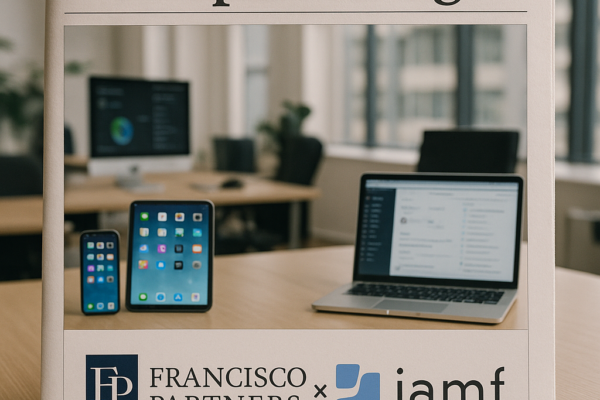Yale University’s exploration of a $6 billion private equity portfolio sale through Evercore represents a strategic inflection point for institutional investors navigating political headwinds and market turbulence. The potential transaction – equivalent to 15% of Yale’s $41.4 billion endowment – underscores growing liquidity pressures among elite universities while revealing structural shifts in private equity’s risk-return calculus. This move comes amid federal funding threats from the Trump administration and collapsing distribution rates across mature PE portfolios, with secondary market discounts reaching 10% below net asset value[1][4][11].
Strategic Context of Yale’s Portfolio Rebalancing
Endowment Performance Pressures
Yale’s endowment generated a 5.7% return in FY2024, marking three consecutive years below the 8.25% threshold required to sustain operational spending[6][10]. While the 10-year annualized return remains strong at 9.5%, short-term underperformance has forced budget cuts across faculty hiring, campus construction, and non-salary expenditures[10]. The endowment’s heavy reliance on illiquid assets (95% allocation to alternatives) exacerbates cash flow challenges during periods of political and market uncertainty[10][11].
Federal Funding Crosscurrents
President Trump’s threats to revoke tax-exempt status and reduce research grants have created existential financial risks for Ivy League institutions[5][8]. Yale’s potential $6 billion liquidity injection through secondaries sales provides flexibility to weather potential funding cuts while maintaining core academic operations. This defensive positioning mirrors Harvard’s $750 million credit facility and Princeton’s $320 million bond offering, illustrating sector-wide balance sheet stress[6][8].
Deal Rationale & Market Implications
Secondary Market Dynamics
The proposed transaction leverages a secondary market experiencing record GP-led deal volume ($84 billion in 2024) and increasing buyer appetite for mature portfolios[9][13]. Evercore’s advisory role brings technical expertise in structuring large-scale LP stake sales, having recently advised on multiple billion-dollar processes[14]. Secondary buyers gain exposure to Yale’s vintage 2015-2020 PE funds at estimated 90-cent NAV discounts, compressing J-curve effects while accessing seasoned assets[4][11].
Portfolio Construction Considerations
Yale’s sale enables rebalancing towards newer vintage years and emerging managers, maintaining target PE allocations while recycling capital. The endowment continues committing to existing GP relationships, ensuring alignment with top-quartile performers like Bain Capital and Silver Lake[6][10]. This “sell to buy” strategy mirrors California Public Employees’ Retirement System (CalPERS) secondary sales used to fund new co-investment opportunities[12].
Political & Regulatory Landscape
Executive Branch Pressures
The Trump administration’s scrutiny of university endowments extends beyond federal funding cuts to include investigations into DEI programs and campus speech policies[5][8]. Yale’s liquidity move creates operational runway to address potential Title IX violations or research grant suspensions tied to political disputes. Endowment CFO David Swensen’s legacy portfolio construction – emphasizing illiquid alternatives – faces stress tests from these unprecedented policy risks[12].
Tax Policy Uncertainties
Proposed legislation targeting endowments over $500 million could impose 1.4% excise taxes on net investment income, potentially costing Yale $580 million annually[8][11]. Secondary sales provide non-dilutive capital to offset such liabilities without forcing public equity liquidations that might destabilize markets. The university’s tax-exempt status remains contingent on maintaining 5% annual payout rates, creating additional pressure for liquid asset buffers[10].
Comparative Institutional Analysis
Harvard’s Contingency Planning
Harvard Management Company’s $750 million revolving credit facility – arranged through JPMorgan and Goldman Sachs – establishes liquidity backstops similar to Yale’s secondary initiative[6][8]. Both institutions face 15-20% NAV discounts on potential PE sales, though Harvard’s larger $53 billion endowment provides greater flexibility in timing dispositions[11].
Princeton’s Fixed-Income Approach
Princeton’s $320 million taxable bond offering demonstrates alternative liquidity strategies, locking in long-term debt at 5.25-5.75% yields while preserving equity upside[6]. This contrasts with Yale’s asset-recycling approach, reflecting differing views on interest rate trajectories and capital market access.
Industry Impact & Secondary Market Evolution
GP-Led Continuation Vehicle Trends
Yale’s process coincides with record GP-led secondary volume ($84 billion in 2024), as managers use single-asset continuation funds to retain top performers[9]. Evercore’s dual expertise in LP stake sales and GP advisory positions Yale to potentially participate in preferred equity strips or NAV financing facilities within these structures[14].
Pricing & Valuation Considerations
Secondary buyers are applying 15-20% discounts to 2020-2022 vintage buyout funds, reflecting higher financing costs and slower exit environments[11][13]. Yale’s mature portfolio (2015-2018 vintages) commands tighter 8-12% discounts given realized carry and resolved J-curves, making it attractive for insurance companies and sovereign wealth funds seeking yield[4][12].
Leadership & Advisory Dynamics
Evercore’s Strategic Role
The investment bank brings technical expertise from advising on $22.5 billion+ in 2024 secondary transactions, including complex LP stake sales and GP-led restructurings[14]. Evercore’s capital markets group can structure stapled financing packages for buyers, potentially involving preferred equity or seller notes to bridge valuation gaps[14].
CIO Transition Planning
With Chief Investment Officer Matt Mendelsohn approaching retirement, the secondary sale provides portfolio clarity for successor candidates. The transaction demonstrates active management capabilities to Yale’s investment committee while addressing concerns about “vintage year overhang” in mature PE holdings[10][12].
Conclusion & Strategic Recommendations
Yale’s potential secondary sale epitomizes institutional adaptation to political, financial, and market crosscurrents. For CEOs and asset allocators, this transaction underscores three critical imperatives: 1) Maintain liquidity buffers equivalent to 15-20% of alternative exposure, 2) Develop explicit secondary market strategies for portfolio rebalancing, and 3) Stress test endowment models against 200-300bps funding shocks. As GP-led secondaries reach 40% of overall volume, forward-thinking institutions should negotiate preferred access rights to continuation vehicles and co-investment opportunities emerging from these liquidity events[9][14].
Sources
https://www.secondariesinvestor.com/yale-sells-up-to-6bn-of-its-pe-portfolio-amid-federal-funding-challenge/, https://www.secondariesinvestor.com/yale-remains-committed-to-pe-as-it-confirms-portfolio-sale/, https://www.pionline.com/endowments-and-foundations/yale-university-studying-sale-private-equity-holdings-secondary-market, https://harnisch.substack.com/p/yale-is-selling-6-billion-of-private, https://energynews.oedigital.com/environment/2025/04/22/yale-university-considers-selling-private-equity-fund-interest, https://www.investing.com/news/stock-market-news/yale-university-explores-sale-of-private-equity-fund-interests-3997120, https://www.marketscreener.com/quote/stock/EVERCORE-INC-30993/news/Yale-University-explores-sale-of-private-equity-fund-interests-49681126/, https://longportapp.com/en/news/236680549, https://intelligentrelations.com/journalist/hannah-zhang/, https://yaledailynews.com/blog/2025/04/22/yale-considers-selling-part-of-private-equity-portfolio/, https://www.ainvest.com/news/yale-effect-private-equity-hit-high-water-mark-2504/, https://www.marketsgroup.org/news/sectors/institutional, https://centers.tuck.dartmouth.edu/uploads/cpee/files/SSRN-id3182481.pdf, https://www.evercore.com/our-transactions/





